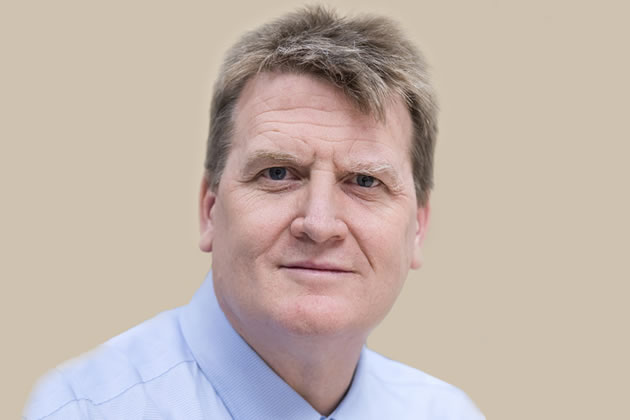Local Health Boss Says Don't Be Scared to Seek Treatment
'Extreme measures' being taken to assure patient safety in hospitals

Professor Julian Redhead, medical director of Imperial College Healthcare NHS Trust
The medical director at a health trust at the heart of the pandemic in London has urged patients not to be worried about coming to hospital, but also to keep following health advice.
Professor Julian Redhead is Imperial NHS Foundation Trust’s medical director and keeps an eagle eye on the latest numbers of coronavirus cases.
“West London was one of the hardest-hit regions in London and certainly in the country,” he said.
He’s led the medical response to the pandemic in north west London, and is involved in regular meetings watching the number of people diagnosed with the virus.
And north west London hospitals were some of the first to see cases and were in the eye of the very turbulent storm when the virus arrived in the capital.
Currently the number of younger people testing positive for coronavirus seems to be increasing.
And Prof Redhead said people need to remain vigilant as it could be their third or fourth contact which transmits the virus.
He said: “The really important straightforward message is pay attention to social isolation, good hand hygiene and wearing the masks when it’s appropriate to do so, because those are the things that do help reduce the spread of the virus.”
He looks at data from each borough every day and speaks to health directors, GPs and other health professionals regularly.
“I think it’s important to put that in context that London as a whole and each borough in London is very much below the worry count, the worry boroughs that we do have around the country.”
And there’s a plan with local authorities in west London on steps they would take if necessary if infection rates rise.
“At the moment the evidence really suggests they are in the younger population and what we can see is a slight rise in infection rates.”
But he said they are not seeing increased hospital admissions, more patients in intensive care or more calls to 111.
“So it does look like a younger population.
“Obviously the concern here is that that young population may transmit it into more vulnerable populations and you would start to see rises and the important message is not just about the contact that young person has with the next young person, it may be two or three contacts before you then leap into a vulnerable community and that’s going to be a worry.”
He added people have to remain vigilant to try and avoid spreading or contracting the virus.
“There is a real worry that we will end up with a second wave and what that will look like we don’t exactly know.
“The more that we as a community can help to protect each other, not just ourselves and how we prevent a third and fourth transmission is going to be really important on how we go into the future.”
Prof Redhead said staff “have been really impressive in how they’ve responded and how they’ve adapted to very challenging and different situations.”
Imperial College Healthcare NHS Trust has seen 430 patients die from coronavirus and treated many more.
“We are concerned about a second wave but we are also having a period of recovery for patients who have had covid and all of those affected by covid who may not haven’t had the illness but have had treatments delayed or concerns about gaining access to healthcare,” said Prof Redhead.
The trust, which includes Charing Cross hospital in Fulham, Hammersmith and St Mary’s Paddington, is putting a lot of effort into reassuring patients who need care that it is safe in hospital, in the community and with their GP.
It has also been at the forefront in pioneering tests, including trialling the 90-minute nudge test which delivers fast results.
And Prof Redhead pointed out the community’s support had a real impact on staff who were in the eye of the storm.
“The community response to our staff has really helped and all the amazing things that the community did to help us and to help our staff was an incredible response and really made a huge difference to them.”
“We are learning all the time about the virus,” he said.
He said the trust wants to maintain as many services as possible safely if we go into a second wave.
The trust is learning about how staff can work in different areas and how to support them.
Professor Redhead said it is “embracing new ways of working” including video and phone consultations where appropriate.
“We’ve been separating our hospitals into different workstreams” to reassure patients coming in for surgery it is as safe as possible.
“We’re doing everything we possibly can to make sure it’s a safe environment for patients and they can be reassured that we are taking really extreme measures to keep them safe.”
And he stressed it was important that patients come forward if they are concerned about their health and get treated.
“The trust is also working with community leaders to get the message out “so they’re not scared and they’re not left behind because of this pandemic.”
Julia Gregory – Local Democracy Reporter
August 24, 2020